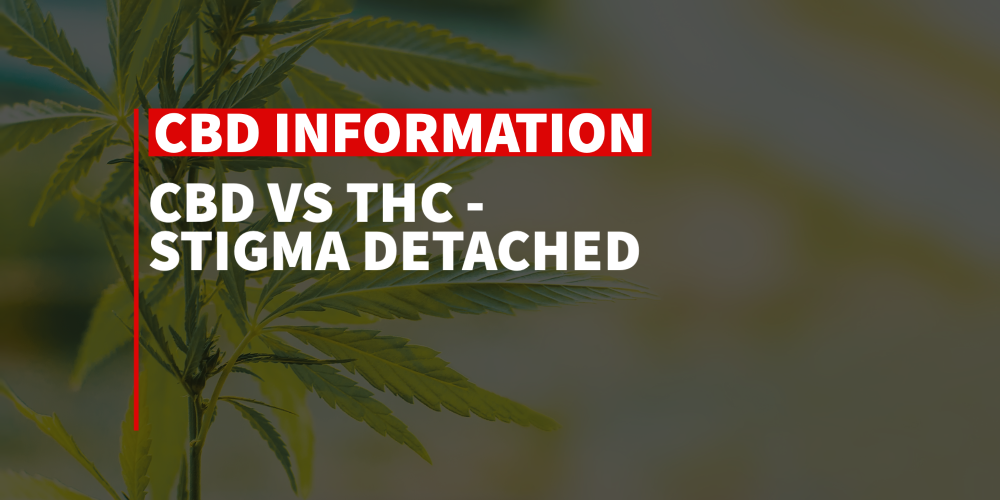Millions of people around the world are using cannabis for medicinal purposes. CBD and THC are two of the most well-known compounds found in cannabis, and they both have different effects on the body.
It's important to understand the difference between them if you're looking to use cannabis for medicinal purposes.
In this article, we'll discuss the differences between CBD and THC oil, and how to choose the right CBD oil for you.
We'll also discuss some of the benefits of using CBD oil.
Firstly, What is CBD oil and what are its benefits?
CBD stands for Cannabidiol and it is a natural compound found in the cannabis plant. Unlike its cousin THC, CBD does not have any psychoactive effects. This means that it will not make you high or change your state of mind in any way.
CBD has many potential health benefits, including reducing anxiety, relieving pain, and improving sleep. It is also being studied for its potential to treat a variety of health conditions, such as arthritis, cancer, and Alzheimer's disease.
CBD is available in many forms, including oils, tinctures, capsules, and creams. It can be ingested orally, rubbed into the skin, or inhaled as a vapor.
The different cannabinoids
There are over 100 different cannabinoids in a cannabis plant.
The most popular cannabinoids include THC, CBD, and CBG. THC is the cannabinoid that is responsible for the psychoactive effects of cannabis.
CBD is the cannabinoid that is responsible for the medicinal properties of cannabis. CBG is the cannabinoid that is responsible for the growth and development of the cannabis plant.
what cannabinoids do:
Cannabinoids are a class of compounds that act on cannabinoid receptors in cells that alter neurotransmitter release in the brain. Cannabinoids are found in plants, animals, and humans. As discussed the most well-known cannabinoids are tetrahydrocannabinol (THC) and cannabidiol (CBD).
THC is the primary psychoactive compound in cannabis and is responsible for the "high" feeling often associated with marijuana.
CBD is non-psychoactive and has been shown to have a variety of medicinal properties.
how do cannabinoids work?
Cannabinoids binds to cannabinoid receptors, which are found in the brain, nervous system, and immune system.
These receptors are part of the endocannabinoid system, which is involved in a variety of physiological processes including appetite, pain-sensation, mood, and memory.
CB1 and CB2 Receptors, learn with us!
The two most well-known cannabinoid receptors are CB1 and CB2.
CB1 receptors are primarily found in the brain and are associated with cognitive effects. THC binds to these receptors and produces its psychoactive effects.
CB2 receptors are found in the immune system and are associated with inflammation. CBD binds to these receptors and has been shown to have anti-inflammatory effects.
In addition to CB1 and CB2, there are a number of other cannabinoid receptors that have been identified, but their exact role is not yet fully understood.
The endocannabinoid system is involved in a variety of physiological processes. Cannabinoids binds to cannabinoid receptors, which are found in the brain, nervous system, and immune system. These receptors are part of the endocannabinoid system, which is involved in a number of physiological processes including appetite, pain-sensation, mood, and memory.
For example, cannabinoids have been shown to:
- reduce inflammation
- reduce pain
- increase appetite
- improve mood
- improve memory
- reduce anxiety
- reduce seizures
Chemical structure: CBD vs THC
These molecules are made up of atoms, and the atoms are held together by chemical bonds. The atoms in CBD and THC are arranged differently, which gives each molecule its unique properties.
The atoms in CBD are arranged as follows:
- 1 carbon atom
- 2 hydrogen atoms
- 1 oxygen atom
The atoms in THC are arranged as follows:
- 1 carbon atom
- 2 hydrogen atoms
- 1 oxygen atom
- 1 nitrogen atom
Legality of cannabinoids:
In the UK, CBD is legal to purchase and consume, however THC is not.
This is because THC is classed as a controlled substance under the Misuse of Drugs Act 1971.
This means that it is illegal to produce, supply or possess THC in the UK. CBD, on the other hand, is not currently controlled under this legislation. However, the UK government is currently reviewing the classification of CBD and may change this in the future. For now, however, CBD is legal to purchase and consume in the UK.
If you are purchasing CBD products in the UK, it is important to check that they contain no more than 0.2% THC. This is the limit set by the UK government for the amount of THC that can be present in a CBD product.
Any products that contain more than this amount of THC are illegal to purchase and consume in the UK.
Drug test!
As more and more states legalize marijuana for medicinal and recreational purposes, people are increasingly wondering which cannabinoids will show up on a drug test.
Generally speaking, most standard drug tests will not be able to detect CBD, as it is not a psychoactive compound.
Some other cannabinoids, such as CBN and THCV, may also be detectable on some drug tests. However, these compounds are relatively rare in most cannabis strains, so it is unlikely that they will show up on a standard drug test.
In conclusion, it is generally safe to assume that CBD will not show up on a drug test. However, trace amounts of THC may be detectable on some tests.
Interactions with other medicines:
CBD is generally considered safe, but it can cause side effects, such as dry mouth, diarrhea, and decreased appetite. It can also interact with certain medications, such as blood thinners. If you are considering taking CBD for a health condition, it is important to speak with your doctor first to make sure it is safe for you. Take a read on our blog how CBD interacts with anti depressants.

